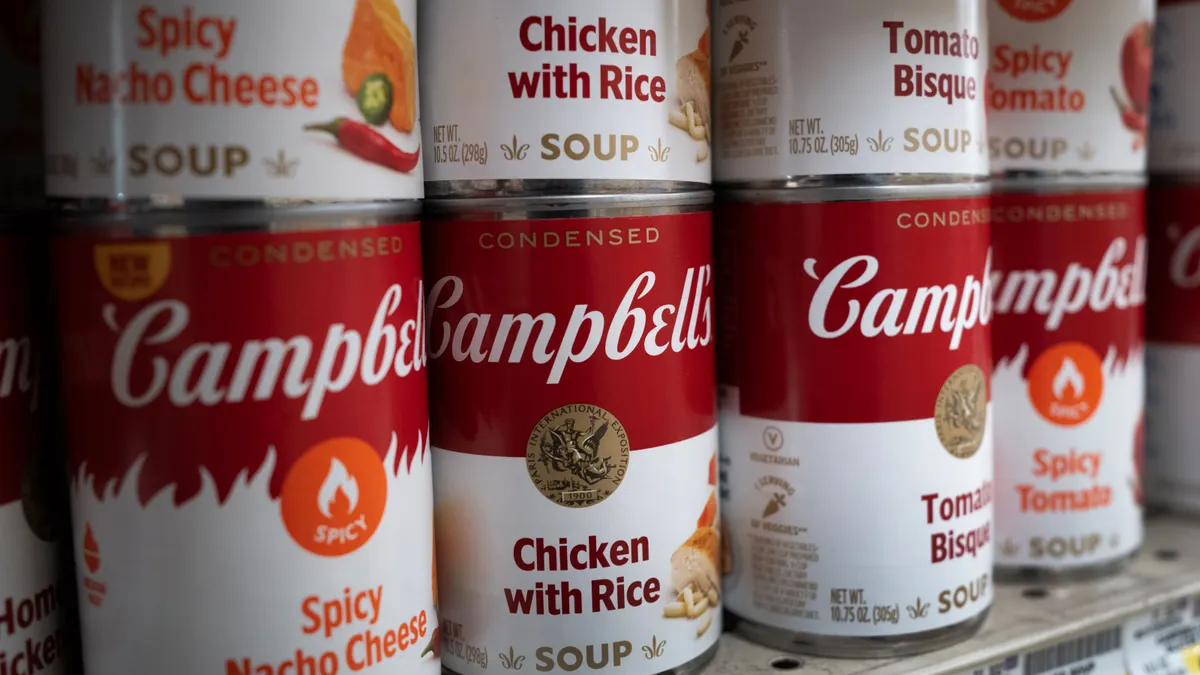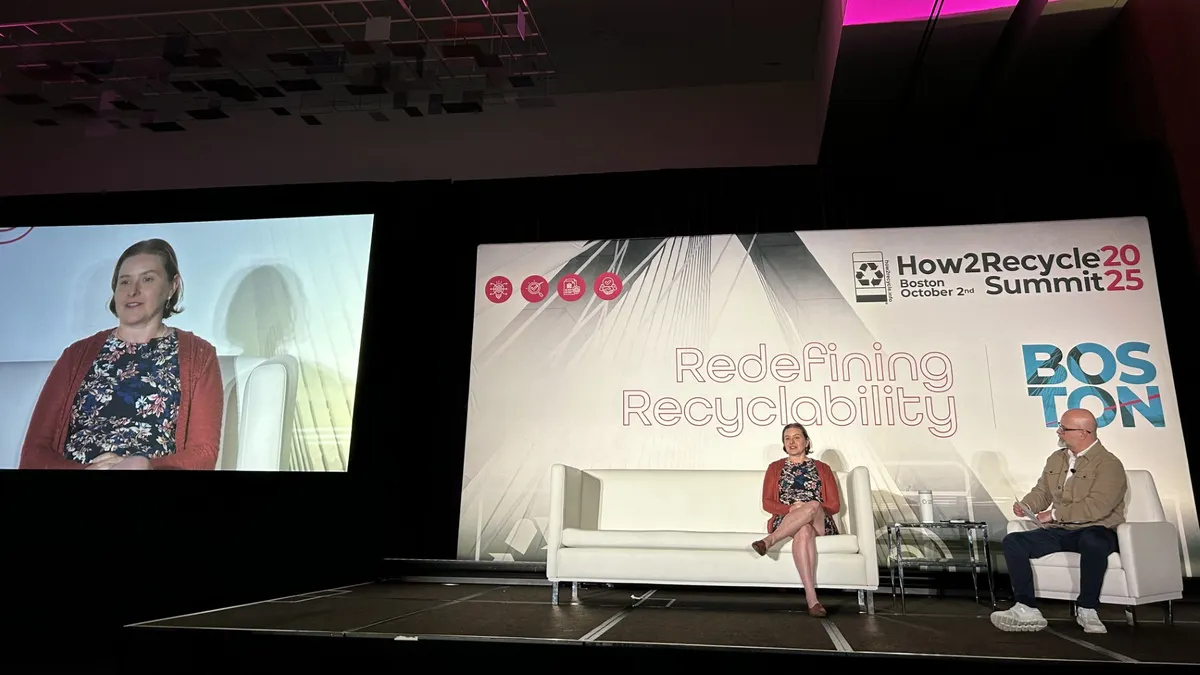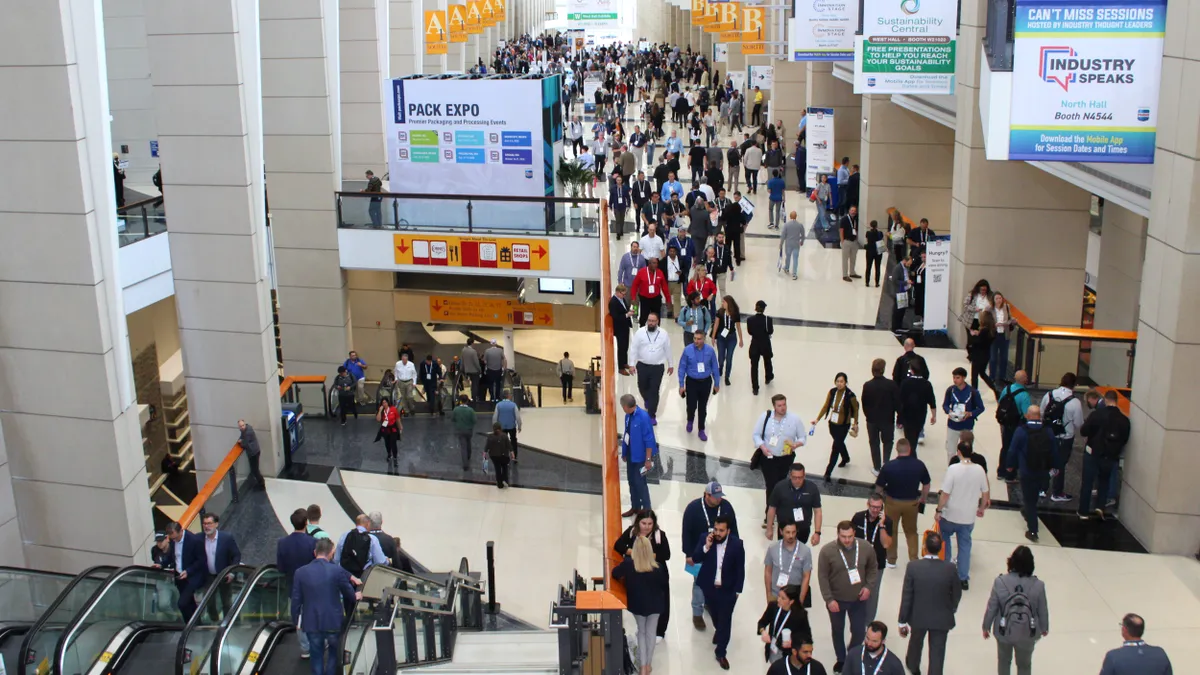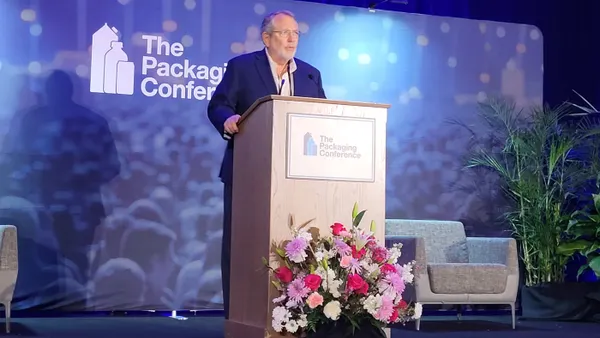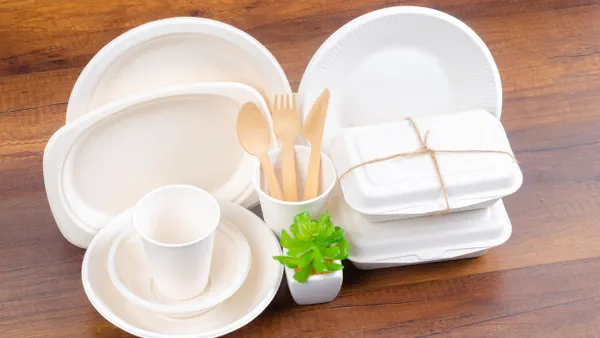Dive Brief:
- The Campbell’s Company said a lack of domestic supply of certain steel derivatives used for canning limits its ability to fully offset the impact of tariffs, according to CEO Mick Beekhuizen.
- The food giant expects to mitigate 60% of tariff costs in fiscal 2026, but over half of its projected tariff exposure is tied to Section 232 duties on steel and aluminum, said EVP and CFO Carrie Anderson on a Sept. 3 earnings call.
- “There's not enough capacity available in the United States or supply available in the United States,” Beekhuizen added. “If it was available, we would buy it locally. We're not able to do that. So as a result, we have no choice but to import that key raw material for our product.”
Dive Insight:
Campbell’s has employed several mitigation strategies to offset tariff expenses, including collaborating with suppliers, finding alternative sources, employing productivity and cost savings efforts and price increases. However, the food company still expects tariff-driven expenses to reach about 4% of the costs of products sold in fiscal 2026, which began Aug. 4.
The food maker has found some success, particularly with its Rao’s brand of premium pasta sauce, by working with Italian suppliers to fight tariffs.
“We have some flexibility with some production in Georgia, and we're working with the co-manufacturer on that with our partner in Italy,” Beekhuizen said on the Sept. 3 earnings call. “However, there is also only so much we can do around that.”
While some levers exist for certain goods, limited tinplate capacity poses a larger challenge which could drive price hikes and financial strain, particularly for Campbell’s meal and beverage business, executives said.
“We're limited to where we can source tinplate. And as a result, we do have to look at some surgical price increases, and so that's built into our plan as well,” Anderson said at Barclays 18th Annual Global Consumer Staples Conference 2025 on Sept. 4.
Campbell’s is also continuing to evaluate alternative sources for many of the goods it imports, including tinplate, but transitioning is a protracted process.
“So sometimes that's taking a little bit longer, particularly if you want to switch suppliers because we want to make sure that we maintain the quality of our product and maintain that consumer proposition,” Beekhuizen said on the Sept. 3 earnings call.


